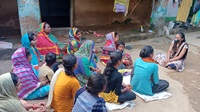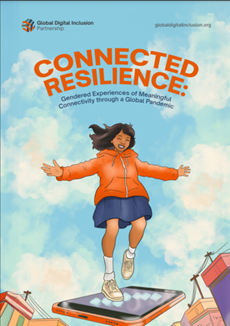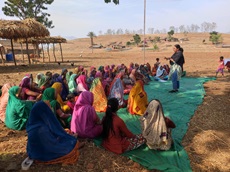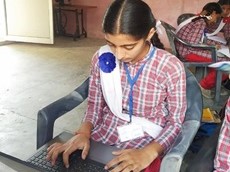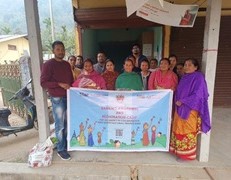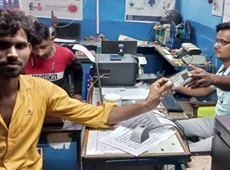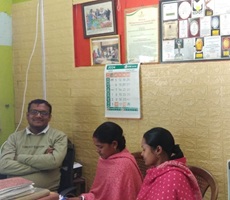

The education sector in India has been highly competitive and exam oriented with little focus on fostering creativity. There are very few institutions that provide high quality, experiential and practical education and so it remains a luxury that only the elite can afford. Read More


The COVID-19 pandemic changed the world. The past years have made it clear that meaningful connectivity is now a basic requirement for all. Yet, too many women, too many of the world’s impoverished, and too many people living in rural communities remain unconnected, underconnected, and left behind. The stubbornness of the digital divide remains a constant undercurrent. Just as policymakers continue to anticipate fourth industrial revolutions and digital transformations from these technologies, millions of people have yet to benefit. From our latest research on meaningful connectivity through the pandemic, we see hope — in the resilience of people living in marginalized communities and in the potential for policy actions that leverage opportunities to support people’s everyday lives. The frontier of digital inclusion policy lies in people-centered solutions that can empower everyone. This requires conscious efforts that put community consultation and community leadership front and center in the decision-making process, moving away from siloed interventions that are often top-down and driven by external motivations. Our research set out to reflect on what we might learn from recent history to understand more about what the future of inclusive ICT policy should be. We carried out focus group discussions in India, Mozambique, Nigeria, and the Philippines and surveyed over 6,000 women from Bangladesh, Cambodia, Ghana, Mozambique, South Africa, and Uganda. Read More


In a world propelled forward by technological advancements, there still exist numerous villages where basic amenities are scarce, and the promise of technology remains distant. For the past month, I've been working in one such village, Sawariyadigar, located in the Nandurbar district of Maharashtra, alongside the indigenous tribal community. Accessing the village itself is a challenge, requiring a 30 to 40-kilometer journey, often involving travel by boat due to the absence of road infrastructure. Despite these obstacles, I've been involved in a digital school initiative, striving to provide amenities that children in rural areas lack. Read More

My journey into the world of digital literacy began last year. Before joining these sessions, my knowledge of computers was quite limited. However, once I enrolled in the digital literacy sessions, my understanding of computers, their features, and their applications expanded significantly. Our digital literacy trainer, Ms. Shivani has taught us fundamental computer concepts. Thanks to her guidance, my typing speed has also improved considerably, allowing me to create documents swiftly and efficiently. As the course progressed, I also learned more about application software, including programs like MS Word and Excel. Digital literacy also introduced me to online security. I previously did not know about computer viruses or antivirus software. Read More
The Rural Women Entrepreneurs (RWE’s) identified in various districts of Assam are facing access related issues in the field of finance. Financial inclusion being an important component towards building a strong business ecosystem to ensure better financial management, Digital Empowerment Foundation took this important step its SoochnaPreneur Business Mitra Center. In collaboration with North East Small Finance Bank an awareness and registration camp was carried out at the SBM center in Hahim, Kamrup District. This handholding support initiative was joined by 14 women entrepreneurs engaged in doing business in various value chains like dairy; food processing; handloom etc. Read More

I am employed as a Junior Technician Trainee at Power Grid Corporation of India Limited (PGCIL). The recruitment process mandated the completion of online forms. A friend from Deoria informed me about Soochna Adhikar Kendra in Deoria, located near Purani Bazaar, which had been operational for a year. The center is headed by Mukesh Kumar, who fills online forms and provides comprehensive guidance on the process. Equipped with this valuable information, I visited the center and expressed my need to fill out the online form for the recruitment of Junior Technician Trainees at Power Grid Corporation of India Limited (PGCIL). Confirming the availability of the vacancy, Mukesh Kumar guided me through the process and assisted in completing the online form. Read More
This report delves into the critical nexus between Aadhaar information and government schemes, emphasizing its indispensable role in securing entitlements for citizens. The government mandates Aadhaar updation and enrollment as a crucial verification step for citizens seeking linkages to various schemes. However, a significant challenge persists, with more than half of the tea garden communities encountering obstacles in accessing means to update their Aadhaar details. Limited mobility, prevalent internet issues, low digital literacy levels, and stringent rules imposed by tea estate managements collectively contribute to the complex scenario. Read More
In the quaint village of Tilpura in Nahaamau, (Barabanki, UP) there lived a determined young man named Deshraj, son of Shri Sohan Lal, aged 20. Despite facing financial hardships and grappling with the challenges of life, Deshraj’s family relied on laborious work for their sustenance. Their meager income barely met their needs, making every rupee precious. One day, Deshraj decided to invest ₹50,000 in a Fixed Deposit with LIC, hoping it would serve as a financial cushion for his family. Little did he know that a discrepancy in his birthdate on the Aadhaar card would create complications. Frustration set in as he struggled for six months to resolve the issue, during which his sister’s wedding added to the family’s financial strain.Read More

Asma Bibi from Nabakantapur, Murshidabad has been working with the Digital Empowerment Foundation as a Digital Didi for two years. During the capacity-building training, Asma initially struggled to understand the topic and was unsure. It was challenging for her to come to terms with the realization that, despite many years of experiencing her periods, she was still unaware of factual information and had been in denial about the need for better practices to ensure an improved menstrual experience. Asma has become a customer of the products she sells and is now a regular user of SmartPads. She found the course on LMS Chatbot highly useful, making things more convenient for her, and expressing her satisfaction with this inclusion. Read More
Bharti Nishad, a 15-year-old girl from Mangsha village in Raipur, Chhattisgarh, is a student gearing up for her class 10 board exams. She represents a crucial demographic that urgently needs to transition from using commercial sanitary pads to more sustainable alternatives. Bharti is optimistic about the impending shift from commercial to reusable pads and is glad to be part of this transformative wave. Having used SmartPads, she attests to their superiority over those available in the market. Bharti has gained knowledge about menstruation and has developed insights to initiate conversations on the topic. The training and knowledge-sharing sessions she participated in have aided in dispelling myths that were previously associated with menstruation. Read More

After the successful completion of the full-fledged survey, the study has entered in the second phase of the project that involves conducting a large-scale enterprise survey of industry leaders and workshops with industries/enterprises/governments to explore options and pitfalls associated with each alternate sector and how to enhance the growth of these sectors. The study seeks to address the challenges in having a multi-stakeholder engagement aspect of just transition from coal based to alternative climate resilient sectors including the need to engage the government, in collaboration with private enterprises, that can take the lead in providing support to the affected communities in the transition process. These players, mainly the government, can invest in skill development... Read More




As we look back on our journey of two decades in providing access to information, here are some core principles based on which the programs have evolved.
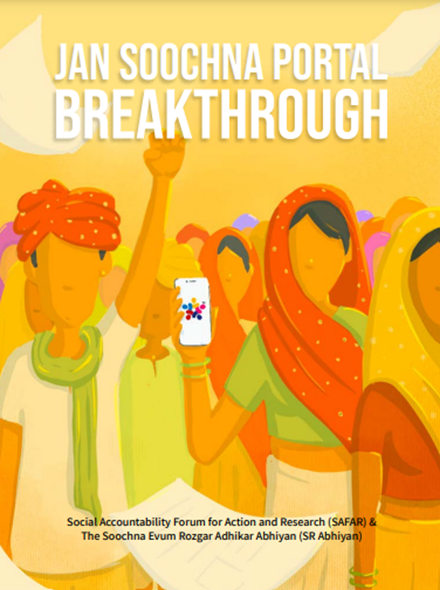



“This is the spot that gets a signal. Apart from this the entire village and in fact the entire island is unconnected."Sawariyadigar is located on a river island in Nandurbar district of Maharashtra. It has no access to road, rail, bridge, or even connectivity. Read More
We are expanding our reach to serve the most marginalized communities across India. Donate to our Digital Daan initiative and help us expand to unreached and unconnected communities.
info@defindia.org
You are receiving our newsletter because you opted-in for the purpose of receiving Digital Footprints, a monthly newsletter on digital development. If you wish to withdraw your consent and stop hearing from us, simply click here to unsubscribe
